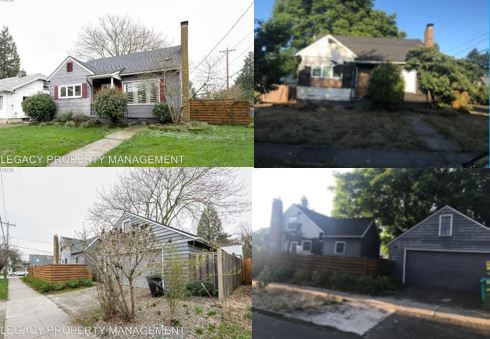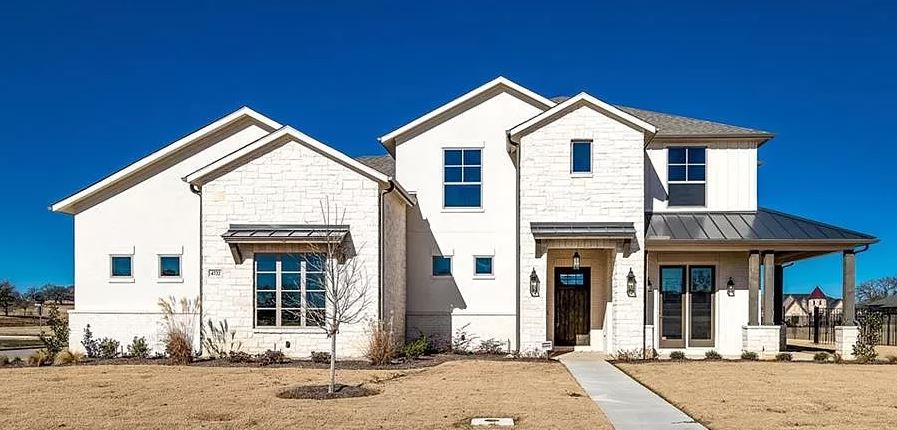Using Background Checks To Underwrite Private Money Loans
At First Capital Trust Deeds, we run background checks to underwrite private money and hard money loans, especially when working with a new borrower...
3 min read
 Ted Spradlin
:
Jul 6, 2022 9:41:28 AM
Ted Spradlin
:
Jul 6, 2022 9:41:28 AM

Usually when a lender does a bridge loan, the borrower will improve the property and the advance rate will decrease, not increase. This blog post discusses the how trust deed investors need to beware of predevelopment margin erosion on the loans they fund.
In April 2018, First Capital Trust Deeds financed a purchase loan on a single-family home located in Portland limited to 75% of purchase price. The property featured high density multifamily zoning with by-right zoning for 20 units located 2 blocks from Interstate Ave in North Portland, close to the MAX light rail stop and New Seasons grocery store. The borrower is an experienced multifamily developer and was going to use the 18-month loan term to rent the property to cover carrying costs of the mortgage while finishing drawings and entitlements for the construction of 18 multifamily units.
The property contained all items within the risk parameters:
Immediately after buying the property the local overheated SFR market began to soften in Portland. Furthermore, I received an email from the insurance company indicating that insurance was scheduled to be cancelled in two weeks unless the leaking garage roof was patched. I also had one of my friends and Portland-based Realtor drive by the property and he reported that the home was clearly vacant judging by 3-foot-tall grass, a boarded up window, and tarped roof becoming the neighborhood blight.
This definitely was a different outcome than the developer originally mapped out prior to the acquiring the property funded by our trust deed investor’s financing.
A few months later, I received a call from the developer who asked: “Since the tenants didn’t want to stay, can we just demolish the property since I am just going to do it anyway? It will be more valuable as dirt to another buyer than this single family.”
Oh shit!!!
Alarm bulldozers were aimed at our collateral!!!
I explained to the developer that the single-family home gives him the option in the event the local development appetite for multifamily turns or capital markets dry up in a recessionary event. He would be able to resell the single family or convert the detached garage into an ADU living space to break even or have a small profit. With dirt, you are completely beholden to the development and credit cycle. The developer begrudgingly agreed, but it was clear that no upkeep would be done on the property for the remainder of the term, regardless of threats to enforce the collateral documents and monitoring of insurance and upkeep.
What started as a loan on a single-family property at 75% LTV transformed to a development loan as deferred maintenance, time to repossess, and softness in the market degraded the margin of safety to who knows…80, 85% LTV?
In the end, I was not entirely concerned as I had constant monitoring of the project through my local Portland Realtor friend driving by every few weeks when he was in North Portland. Additionally, I had the ability to force place insurance or enforce the collateral rights within the Loan Agreement, which was explained multiple times to the developer.
The worst-case scenario would have been foreclosure, complete the entitlements, and break ground on an 18-unit condo building using one of FCTD’s private money construction lenders to build out the project. Or, after entitlements were completed, sell the property to another developer to build the 18 units.
Fortunately, the developer fulfilled his minimum responsibilities as specified in the Loan Agreement and FCTD was able to secure a $2,800,000 ground up construction loan to build the 18 condo units.
But, it wasn’t an easy process and didn’t come with challenges as mentioned above.
Moral of the story: trust deed investors should beware the very real risk of predevelopment margin erosion that can happen. They must keep in mind that as more developers move from value add (Fix and Flip projects) to ground-up development at this point in the housing cycle, developers will use advantageous zoning changes and development opportunities to achieve higher returns.
They also may not exhibit the same care and upkeep on your collateral as a traditional value add or bridge loan would reflect during the pre-development loan timeline, as evidenced by this scenario we navigated in North Portland.
Proper advance rates, loan structuring, and continuous monitoring should be in place to maintain your leverage position on your collateral and avoid predevelopment margin erosion, keeping your trust deed performing and eventually paying off on-time every time.

At First Capital Trust Deeds, we run background checks to underwrite private money and hard money loans, especially when working with a new borrower...

If you’re researching trust deed investments or looking to fund or buy existing Notes from new mortgage brokers, you’ll want to know if the rate of...

Like most of First Capital Trust Deed’s current trust deed investors, you have funded private money loans in the past and are familiar with how the...